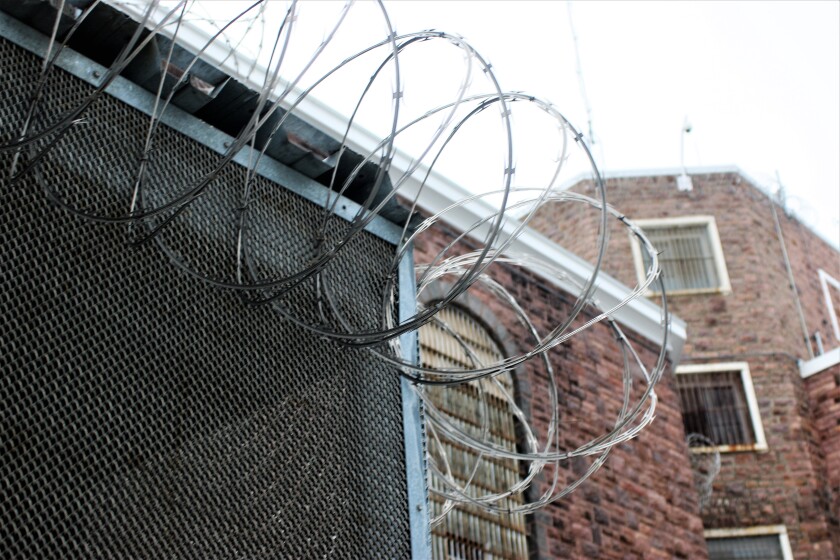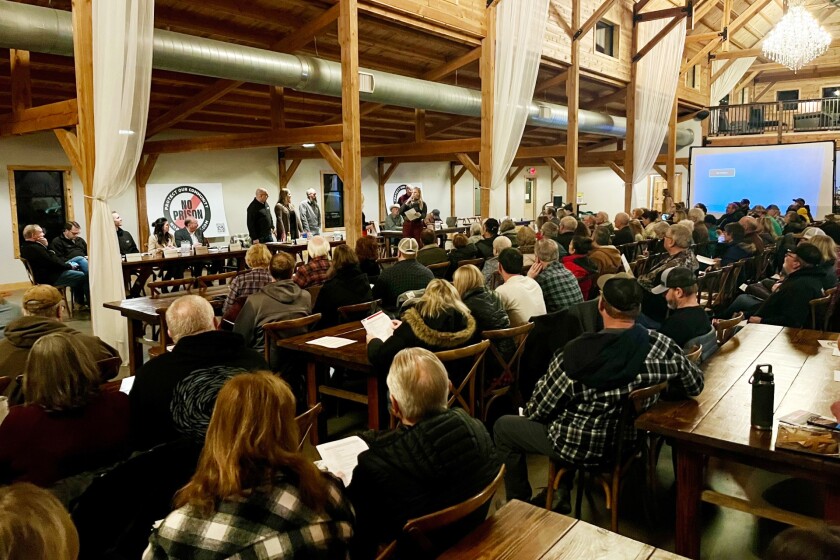PIERRE — It’s been two weeks since the South Dakota Legislature first convened, and a series of bills related to the planned operation of a state penitentiary in Lincoln County are slated for discussion and debate.
While some have already advanced, another was quickly swept away. A third cluster of bills have yet to be discussed.
As questions swirl about how to approach and logistics of the construction and operation of a new penitentiary, so do questions about Sec. Kellie Wasko, head of the state’s Department of Corrections (DOC).
Just days before the Legislature convened on Jan. 9, a collective of corrections employees released a letter calling for Wasko’s replacement.
“A prevailing sentiment among most staff is that Secretary Wasko's continued tenure as a leader has proven ineffective,” the letter reads. “Many believe that a change in leadership, one that is more supportive of the well-being and concerns of correctional officers, is imperative.”
In the letter, staff allege that Wasko’s policies have led to an increase in contraband and drug distribution, increased inmate’s resistance to corrections officers’ authority and increased response times to emergencies.
The call for her replacement resulted in Rep. Kevin Jensen, R-Canton, asking fellow lawmakers to vote against prison expansion until the issues brought forth in the letter are resolved.

“A new building will not fix horrible policy issues,” Jensen said he told lawmakers. “There is no urgency to move forward. An 800 million dollar mistake would be on our heads if we approve it.”
While it’s unclear whether lawmakers plan to heed his advice, here are a few important prison and criminal defense bills to keep an eye on:
HB 1057: Creating a statewide public defender’s office
One piece of legislation would create two new bodies in the realm of criminal defense for low-income individuals across South Dakota.
House Bill 1057 would direct for the creation of the Commission on Indigent Legal Services and Office of Indigent Legal Services.
The creation of those bodies was a need identified in a summer study conducted by lawmakers last year. Per the bill, the commission would oversee indigent representation services while the office would do the groundwork providing those services.
As it stands, county governments, funded by its citizens, foot the bill for indigent representation. With HB 1057, state government would pay as part of its operating costs.
According to Greg Sattizahn, a court administrator and lobbyist, the commission and office would take approximately $1.4 million to establish — a number that Gov. Kristi Noem has already factored into her budget proposal.
After being heard by the House Committee on State Affairs on Wednesday and Friday, it was referred to an appropriations committee by way of a 13-0 vote.
It has not yet been scheduled for a second committee hearing.

SB 31: Funding for indigent legal services
A separate bill navigating through the Senate would provide funding for the Commission on Indigent Legal Services.
Senate Bill 31 stipulates that the funding shall be kept at the state level. Twenty-two percent of the funds would be used for administration, with the rest being disbursed to counties to cover indigent legal expenses.
After its first reading in the Senate, the bill was referred to the Joint Committee on Appropriations, and has not yet been debated by lawmakers.
HB1039: Pushing DOC to cover inmates’ legal expenses
With the prison’s planned location near Canton, officials in Lincoln County are concerned about whether the county will be able to cover criminal defense costs for inmates.
To address that, Rep. Ernie Otten, R-Tea, introduced House Bill 1039.
If it were to become law, the Department of Corrections would be required to cover legal expenses for inmates who commit crimes inside DOC facilities.

The bill was first heard in the House Committee on State Affairs, where it passed with a 13-0 vote. It was then transferred to appropriators, who added an amendment that would provide for the possibility to force the inmate, if convicted, to repay their legal expenses as part of their terms of probation or parole.
Jensen’s bill comes as Lincoln County Commissioner Joel Arends estimates Minnehaha County’s Public Defender’s Office spends up to $100,000 annually on the criminal defense of inmates. Lincoln County does not have a public defender’s office, and instead contracts with area firms.
The bill has not yet been voted on by appropriators in its entirety.
SB49: Moving money to fund the prison
It’s going to take a large sum of money to construct a new prison, and appropriators are beginning to take steps to spend it.
Senate Bill 49 calls for the use of $10 million in federal grant funding for the installation of water and wastewater infrastructure at the site. It also transfers more than $228 million from the state’s general and reserve funds to the Department of Corrections for the purpose of prison construction.
The bill has been referred to a Senate appropriations committee, but has not yet received a vote.
Some lawmakers have estimated the new prison will cost as much as $1.2 billion to construct.
The South Dakota Legislature will remain in session until March 7, with an extra day on March 25 reserved for consideration of gubernatorial vetoes.












